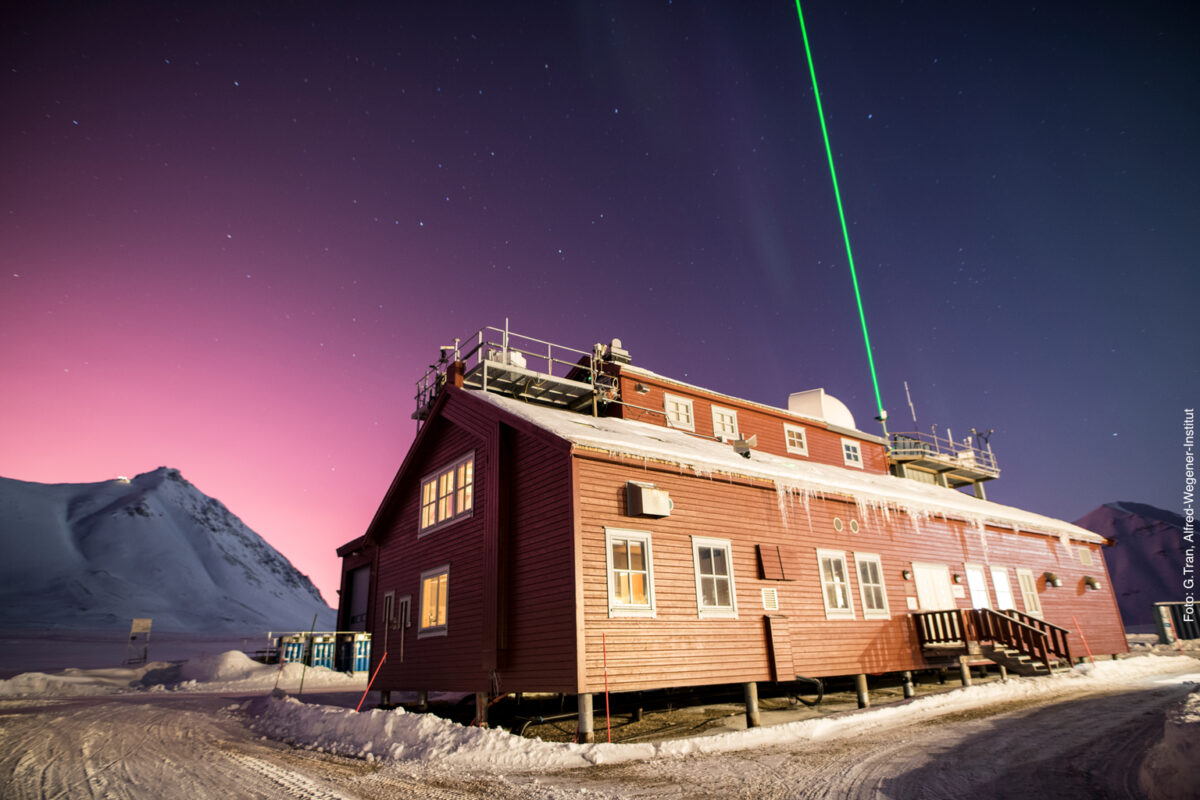Research in the Section „Atmospheric Physics“ at the Alfred-Wegener-Institute (AWI)
The polar regions are particularly affected by global warming. Processes in the polar atmosphere and their interactions with sea ice and the ocean play an important role in the rapid changes in these regions. The changes in the polar regions may also affect other parts of the world via atmospheric teleconnections, especially extreme events such as particularly warm or cold winters or heat and dry periods in summer. The overarching goal of the Atmospheric Physics section is to improve the understanding of the polar atmospheric processes and their interactions with sea ice and ocean in the global context. For both polar regions, model simulations still deviate strongly from observations. To improve the representation of polar processes in regional to global-scale climate models, we combine long-term observations with the development of process-scale models. Our innovative measurements are based on ground stations, airborne platforms, and research vessels. We coordinate the science program at the Arctic research base AWIPEV on Svalbard an run the meteorological and atmospheric observatories both at AWIPEV and at the Antarctic research station Neumayer. Polar airborne and research balloon sounding campaigns are complemented by measurements in other regions of the world, e.g., with the current temporary operation of a research station in the West Pacific on Palau.
Research topics
- Aerosol and clouds: Analysis of thermodynamics and energy fluxes, radiative effects, transports and their representation in models
- Atmospheric chemistry and ozone: Understanding of changes and underlying processes
- Polar atmospheric boundary layer: Investigation of small-scale atmospheric processes including air-ice interactions and their parametrization
- Climate modeling: Understanding of key processes and feedbacks, and linkages between polar regions and lower latitudes
Methods
- Ground based and airborne measurements of atmospheric variables, e.g. wind, temperature, humidity and ozone profiles, and aerosol properties
- Process modeling, based on mesoscale models and large eddy simulations
- Climate modeling, mainly based on the ICON model family
- Analysis of various data sets, incl. reanalyses and CMIP6 data
Responsible person
Prof. Dr. Markus Rex, Section Atmospheric Physics, Alfred-Wegener-Institute
Projects we participate in
(AC)3
Arctic Amplification: Climate relevant atmospheric and surface processes and feedback mechanism):
https://www.ac3-tr.de/projects/cluster-c/a03
https://www.ac3-tr.de/projects/cluster-c/d01/
https://www.ac3-tr.de/projects/cluster-c/d03/
https://www.ac3-tr.de/projects/cluster-c/e02/
https://www.ac3-tr.de/projects/cluster-c/e04/
PolarRES (Polar Regions in the Earth System)
https://polarres.eu/
https://www.awi.de/en/science/climate-sciences/atmospheric-physics/projects/polarres.html
CRiceS
Climate Relevant interactions and feedbacks: the key role of sea ice and Snow in the polar and global climate system:
https://www.crices-h2020.eu/
https://www.awi.de/en/science/climate-sciences/atmospheric-physics/projects/crices.html
CHARTER
Drivers and Feedbacks of Changes in Arctic Terrestrial Biodiversity:
https://www.charter-arctic.org/
https://www.awi.de/en/science/climate-sciences/atmospheric-physics/projects/charter.html
SynopSys
Synoptic events during MOSAiC and their Forecast Reliability in the Troposphere-Stratosphere System:
https://www.awi.de/en/science/climate-sciences/atmospheric-physics/projects/synopsys.html
REKLIM
Regional climate change:
https://www.reklim.de/en/research-themes/rt2-coupled-regional-modelling/
ACTRiS
Long-term observations of climate relevant variables:
AWI sea ice portal
https://www.meereisportal.de/en/seaicemodelling/weather-seasaw-arctic-middle-latitudes/
